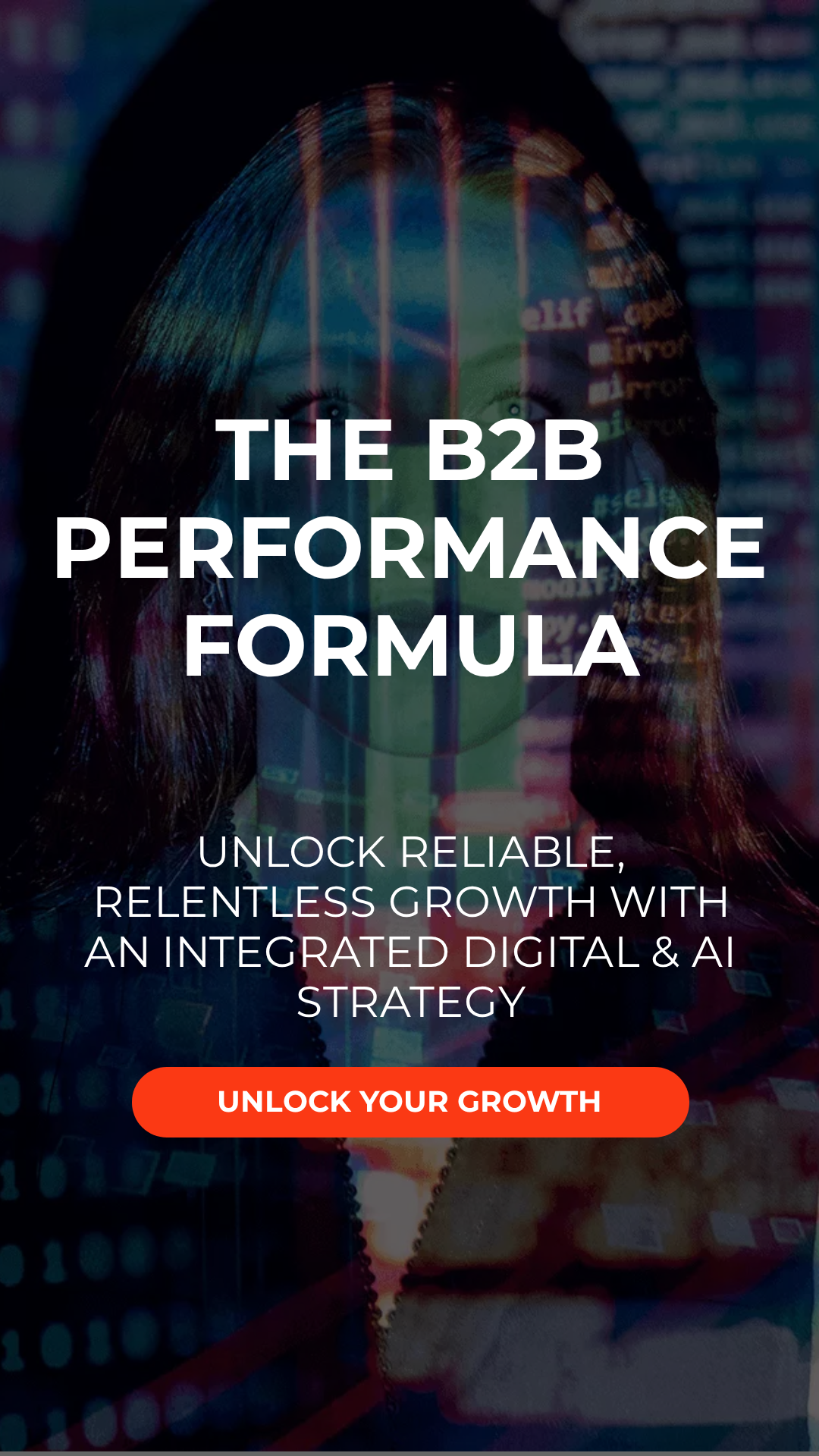AI search engines judge your content’s credibility.
While traditional search algorithms were content to count backlinks and keywords, AI search engines are far pickier about who they’ll recommend. And they’ve developed quite the sophisticated BS detector.
Enter E-E-A-T (Experience, Expertise, Authoritativeness, and Trustworthiness) – the gold standard for earning credibility and visibility in today’s AI-centric world.
Why AI is even pickier than Google about credibility
“We’re seeing a fundamental shift in how search engines process and deliver information. Traditional SEO isn’t enough anymore. GEO ensures you remain discoverable in an AI-first world.” – Ashley Salek, Agency Director
AI-powered search doesn’t just want information; it wants credible information. AI systems aren’t just searching for keywords; they’re evaluating credibility, context, and trustworthiness in real time. Understanding what E-E-A-T is and how to implement E-E-A-T in SEO is essential for adapting to this new landscape.
Research shows that content with proper attribution formats is 3.2x more likely to be referenced by AI systems. Content with clear expertise and authority signals enjoys 57% more visibility in AI-generated responses. Those aren’t small margins.
What is EEAT? The four pillars of content credibility
E-E-A-T stands for Experience, Expertise, Authority and Trustworthiness. Let’s take a closer look.
Demonstrating experience
AI wants the real deal. Have you actually done the thing you’re talking about? Hands-on experience signals carry serious weight in AI evaluations. The days of regurgitating someone else’s advice are numbered.
Demonstrating expertise
What qualifies you to speak on this topic? AI systems are increasingly sophisticated at evaluating subject matter expertise. If your content reads like you skimmed a Wikipedia article five minutes before writing, AI will notice.
Authoritativeness
Are you recognised in your field? Do others cite your work? AI systems evaluate the broader context around your content and organisation to determine if you’re an authoritative site worth quoting.
Trustworthiness
Can AI systems trust that your information is accurate, current and well-sourced? Transparency in attribution, clear citation practices and accurate information are non-negotiable.
How to signal “I’m Legit” to AI systems
Want to make sure AI systems recognise your credibility? Here’s some E-E-A-T guidelines:
1. Attribution is your new best friend
Proper attribution is critical. AI systems appreciate clear, verifiable sources and credentials. Make sure to:
- Use expert quotes with their full credentials (not just a name)
- Create consistent citation formats for statistics and research
- Develop attribution templates you can use across content types
Think of attribution as AI breadcrumbs. Each one helps AI systems trace your information back to credible sources.
2. Flaunt your expertise
By…
- Building robust author profiles that highlight actual credentials (“social media guru” doesn’t cut it)
- Creating dedicated profile pages for experts with detailed credentials, publications, awards, certifications and a portfolio of relevant work. Link to these pages wherever an author contributes content
- Clearly outlining the creation process – e.g., “This article was researched, written, and reviewed by XYZ, a certified expert with 10+ years of experience”
- Creating an “About Us” page that doesn’t sound like it was written by a corporate robot
- Sharing first-hand or personal experiences like product reviews or processes – “We tested 50 products” beats “Products should be tested” every time
- Publishing case studies with specific, verifiable results to build trust
- Displaying certifications, awards, or affiliations with authoritative bodies within your content and author bios
3. Get technical about your authority
- Use references that AI can actually verify (specificity matters!)
- Build quality backlinks from sources AI already trusts
- Maintain consistent formatting so AI can easily parse your content
Implement schema markup to spell out your expertise for machine readers
- Author Schema, Article Schema, Review Schema: These markups help AI systems understand who authored the content, their credentials, and the type of information being shared
- Fact-Checked Schema: Implementing structured data for fact-checked content signals trustworthiness, especially for YMYL (Your Money or Your Life) topics
- Breadcrumb Schema: Helps establish the credibility of your website’s structure and content flow
4. Social proof and third-party validation
AI values authority, and nothing screams authority like endorsements from other recognised experts.
- Actively seek endorsements or citations from established, credible sources
- Highlight real-world applications of your expertise through verified testimonials or detailed case studies
- Include quotes or contributions from other experts to enhance authority and experience signals
5. Updated content hubs for authority building
AI systems love structure. Giving them clear, authoritative content clusters is like giving them a roadmap to your expertise.
- Establish topic clusters with pillar content supported by related articles, all interlinked to demonstrate expertise and authoritativeness on a subject
- Develop dedicated E-E-A-T pages that outline your organisation’s credentials, methodology, and commitment to transparency
- Regularly update high-performing content to keep it relevant and accurate
- Include revision dates and version history to demonstrate your commitment to maintaining accuracy and credibility
“Updating content isn’t just a box-ticking exercise. AI search engines evaluate how often you refresh statistics, references and examples” – Emily Sotudeh, Content Specialist
6. Visual E-E-A-T
Words aren’t the only way to prove expertise. Visuals count, too.
- Use infographics, charts, and diagrams designed by credentialed experts or sourced from authoritative research
- Ensure visual content is also optimised with proper attribution and schema markup where applicable.
7. Boosting trust and credibility through multiple channels
AI systems are programmed to assess credibility through various signals. To ensure your content stands out, it’s essential to optimise across multiple fronts.
- Add privacy policies, terms of service, and editorial guidelines that are clear and accessible
- Implement reputable security certifications (HTTPS, SSL), especially for e-commerce or YMYL content
- Include author names or expert credentials directly in meta titles and descriptions where relevant
- Cite reputable third-party sources (.edu, .gov, or peer-reviewed publications) where applicable
- Consider guest-posting on established platforms to strengthen authoritativeness and credibility
Real results, not just theory
A healthcare client of ours was struggling with visibility despite solid content. After implementing a comprehensive E-E-A-T strategy, adding expert author bios, incorporating credentialed quotes into key pages, and highlighting their medical experts across the site, they saw:
- 60% increase in top position rankings
- 40% jump in organic leads
These improvements came from properly showcasing the expertise they already had.
What author bios should look like
Here’s an example of an optimised author bio that effectively communicates E-E-A-T:
Dr. Helen Smith is a board-certified dermatologist with over 15 years of clinical experience treating conditions like acne, eczema, and skin cancer. She completed her residency at Oxford University and has published over 20 peer-reviewed studies on emerging acne treatments. Dr. Smith serves as Clinical Director at [Faculty name] and volunteers monthly at [Facility name].
What makes this effective?
- Credentials are specific and verifiable
- Reputable sources and affiliations are mentioned
- Practical experience is highlighted, making her a credible authority on the topic
Notice what’s missing? Vague statements about “passion”. AI systems prefer concrete credentials over fluff.

The bottom line
The rise of AI search means you actually need to know what you’re talking about – or connect with people who do for content creation.
The good news? If you genuinely have expertise in your field, AI search may be the best thing that ever happened to your visibility. The playing field is being levelled in favour of expert-created content.
So ask yourself: Is your content signalling E-E-A-T in ways that both humans and AI can recognise? Because in the new search landscape, that’s the difference between being the quoted authority or becoming invisible.
Want our complete GEO playbook with all 7 strategies for AI visibility? Download our free guide with copy-paste prompts and templates: 
About SeventhElement: We help organisations adapt to the AI-first search landscape through Generative Engine Optimization (GEO) strategies that increase visibility, credibility, and conversion in AI-powered search.
Related articles and references:
- The GEO playbook
- Google vs Spam – Is AI content at risk?
- Topical authority in the age of AI
- Search and AI live session
- E-E-A-T iformation – Google
- What is E-E-A-T – Search Engine Journal
This fuel room post was written by:
Emily, our content specialist, has 6+ years of hands-on experience in multi-channel marketing, content and SEO. Emily has an MA from the University of Sussex and has written for wide-ranging clients and sectors. She joined SeventhElement in 2018 and is behind the creative thinking and content strategy that fuels our client projects.

















